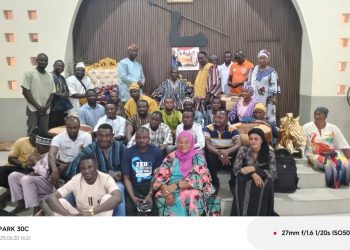
The Bole District Department of Agriculture has engaged some stakeholders in the District to sensitise them on the second phase of the Planting for Food and Jobs (PFJ2.0) programme.
The engagement was to, among other things, expose the stakeholders to the PFJ 2.0 registration process and encourage them to in turn educate their communities.
Speaking at the event, Hon. Veronica Alele, the District Chief Executive expressed hope that the sensitisation would help the people to have deeper understanding of the programme and how they could benefit from it.
“We will continue to create awareness and get more people to be aware of the PFJ 2.0 and its benefits so that more farmers will be enrolled,” she indicated.
She also expressed hope that the PFJ 2.0 would yield the expected outcome of increasing agricultural production and contributing to poverty reduction, especially in the Savannah Region.
The DCE indicated that the PFJ 2.0 had come to build on the successes of the first phase of the programme.
She said it was, therefore, necessary to educate the stakeholders on the PFJ 2.0 programme to enable them to appreciate the potential impact of the programme on farmers and its implementation modalities.
She said that would also enable the stakeholders to extend the education to the farmers to benefit from it.
The DCE announced that registration of farmers for the programme was currently ongoing and there was the need for the farmers to know the requirement for the registration.
She encouraged institutions in the District, including government agencies and departments, to take advantage of the programme to help contribute to the goal of achieving food and nutrition security.
In a presentation, Mr Sualey Abukari,the District Agric Director noted that the registration of farmers for the PFJ 2.0 was done through a digital platform called the “Ghana Agriculture and Agribusiness Platform”.
He said it was necessary to enable the government to keep a database of farmers in the country.
Mr. Abukari explain that the program has being given to private sector known as aggregators who will supply all the farm inputs to the farmers .
He further explained that unlike the phase I ,after harvest,the aggregator will now take the amount in kind with zero interest and report back to government.
Source: yagbonradioonline









